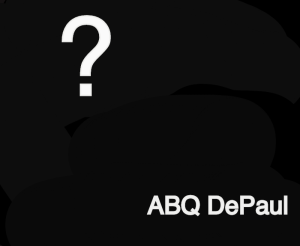Enass Zayed gives her take on the concept of faith and truth in a world of varied ideologies and experiences.
Over the course of this last year I have been asked to reflect on my religious ideologies quite a bit. There have been questions that I have had welling up from my own traditions that I have had to find answers to and there have been aspects of other traditions that I have felt were so profound that I have tried to incorporate them into my own belief structure. One of the biggest things that I have had to work my mind around is the concept of faith and how it exists within the concept of exclusive truth. There are many people who hold the belief that their traditions are the only proper way to behave. This phenomenon is prevalent in all aspects of life; religious or secular. My biggest challenge has been trying to remove myself from the ranks of the exclusive.
On our very first meeting, Mat Charnay asked me to define faith. While the clear and obvious answer is full trust in something outside of your self, I felt as though that was not enough to encapsulate the idea. Faith is taking the leap and hoping something catches you. In my mind, the strongest faith comes from knowing that there is a possibility that things are not quite as you imagine them, but committing to your ideas anyway. Faith is built by making informed decisions and seeking knowledge in all its forms so that any ideas that are created are likely to stand the barrage of obstacles that life throws at us. I am a firm believer in the idea of individual truth as opposed to a general and exclusive truth. Not everyone’s idea of religion are going to be able to satisfy the needs of the rest of the world and that is okay. In fact, that is the most beautiful things about faith in general. When properly executed, faith allows many people to have beautiful, complicated, and extensive ideas about every part of their lives: ideas that are relevant to their relationship with their world and their religion.
While most of this idea is pretty elementary to most, the part that I believe is left out is the idea that we might be wrong. I know that there is slight possibility that everything I hold true could be proven wrong tomorrow, but this understanding is what keeps my concept of faith growing. My personal approach to religious belief is that (most) everything is fluid. Ever since I was a child, I have done my own research into the religious systems that have surrounded me. I was never content to let someone give me traditions without understanding why there were valid or relevant. I was never content in settling on one answer because that would have meant that my research into faith would have stopped. Once I reach a comfortable conclusion, there is no point in continuing my search for a self relevant truth. My faith is built on the idea that I have to build knowledge to minimize the possibility that I am wrong about everything.
So, is the exclusivity of truth even relevant in the discussion of faith? In my opinion it is. From personal experience I have found that many people are unwilling to question their concept of truth as it would apply to another person. There is also little thought put into the idea that we do not always have the answers to everything. The idea of an exclusive truth lends itself to the idea that one religion is more valid than any others. This concept is problematic because so many religions teach that religion is a shared experience even if we do not all carry out our beliefs in the same manner and traditions. While my understanding of truth may be valid today, it is valid only in my experiences and only until something to the contrary comes into my world view. Until then, I feel as though I owe it to my faith and my religious belief to continuously research and build a stronger foundation from which I can take my leap of faith.

